In the spring of 334 bc, Alexander of Macedon paused with his army on the western side of the Granicus River. Only 22 years old, he had become king of Macedon 18 months earlier after the assassination of his father. Since then he and his army had spent their time shoring up the allegiance of other Greek states, securing their northern borders against the barbarian tribes, and only recently had crossed the Hellespont into Anatolia out of Europe and into Asia.
But it was no mere tribe that faced them across the Granicus. Only a shallow riverbed and a calm stream separated his army from that of the Persians, both lines of battle extending nearly three miles downriver. Already midafternoon, and with not only his men watching him but also the Persians, Alexander had to decide what to do. The young Macedonian king was quite ostentatious with his shining weapons and double-plumed helmet and the orchestrated flurry of his men clustering around him, but such gestures belied a moment of true indecision.
The river had probably never received so much attention as in these moments, on this spring day in an open, largely featureless landscape. Every Macedonian eye took in the river: each bend, the placement of each stone, the height of the bank as it rolled higher or lower, the breaks along it that would allow egress from the river, and the softness of the gravel. The restlessness of Alexander’s men, tens of thousands of them, from the rattling together of their sarissas (waves of 13- to 20-foot wooden pikes lining the riverside like a desiccated forest) down to their greaves as they shifted from one leg to another, or back up to the cavalry and the neighing and muttering of horse and rider, or the rattle of sword and lance. All of it would have been a huge drinking in of the lazy river and wondering who among them had come here to die and when.
For the question was a matter of timing: whether to attack now, when both sides knew Alexander had superior numbers but an inferior position, or wait until morning, certain of a better position but risking the arrival of more Persians. And from the first moment, Alexander and his veteran generals saw it differently.
The young king’s advisers were made up equally of an old guard, men many years his senior who had served with his father, and quite literally men young enough to be their sons, many of them Alexander’s friends from the elite and enclosed Macedonian court. One of the former, the general Parmenion, advised him to wait. A crossing now, he said, could only be done at a point of the Persians’ choosing and while under immediate attack. This could only lead to slaughter. “Thus our first stumble would harm our present standing and might even spoil the outcome of the larger war,” he said.
“I would be ashamed, after having easily crossed the Hellespont if this little stream keeps us from crossing as we are,” Alexander replied. Like all great propagandists, he considered that what his actions symbolized were just as important as what those actions actually were. “I would consider [waiting until morning] unworthy of the Macedonians’ renown and of my quickness to accept risks,” he said. “And I think the Persians would take courage and think themselves a match for the Macedonians in battle, seeing that up to now their fears have not been confirmed by what they have experienced.”
Already Alexander had a confidence in himself and in his men and their affection for him that his soldiers could not yet comprehend. But they soon would, since the Alexander of history was born in moments like this, in those minutes by the calm river before he ordered his men across.
The Legendary Alexander of Macedon
King Philip II of Macedon had as many as eight wives, and Alexander was the son of one of these women, Olympias. Legends inevitably attached themselves to the boy, many of them merely pious inventions created after the fact, or even by his mother for the sake of her own and her son’s security. As Arrian cautions at the outset of his own long narrative of Alexander, “There is no figure about whom more writers are more at variance.”
One of these stories is of his mother dreaming that her womb had been struck by a thunderbolt; and since Zeus was known to have a thunderbolt or two, it was said that the god was Alexander’s real father. Another involved Busephalus, the horse Alexander rode from his adolescence to the Battle of the Hydaspes many years later. Originally a gift from Thessaly and meant for his father, Philip found it untamable and thought to send it back. His son proved defter, and through his tears Philip was supposed to have told his son that Macedon was too small for him and that he would have to find a kingdom big enough for his ambitions.
Famously, Alexander’s teacher from ages 13 to 16 was 43-year-old Aristotle, and it is often assumed the young boy and the older philosopher learned next to nothing from each other. But this presumes that Aristotle was merely otherworldly and Alexander only a brute. Aristotle, however, was politic enough, and one of his stipulations upon accepting the position was for Philip to rebuild his hometown, Stageira, which the king had destroyed. He later advised Alexander to be a just leader to the Greeks but to treat the Persians as if they were “beasts or plants.”
Aristotle also instilled in the boy a lifelong love for Homer’s Iliad, an annotated copy of which Alexander took on campaign with him. The popular image of the philosopher teaching Alexander alone is also, surprisingly, incorrect. As head of the academy in Macedon, many of those who would become Alexander’s core “Companions” were also taught by Aristotle, including Cassander and Ptolemy, the future Hellenistic kings who inherited and divided Alexander’s empire.
When he was just 16, Alexander was left in charge of Macedon when Philip went off to war in Byzantium, and the young man quickly put down a revolt of Thracians, repopulated the area with Macedonians, and modestly named the new town after himself, the first of nearly 20 cities so named. Over the next few years he campaigned by himself and then alongside his father, and at the Battle of Chaeronea in 338 father and son each commanded a wing of the army. In the years before his assassination, however, Philip fell in love with and married another woman, briefly putting a question to Alexander’s succession, and even exiling him for a time. At the wedding banquet Philip made a drunken charge at his son only to slip and fall to the floor, to which Alexander said, “See there, the man who makes preparations to pass out of Europe into Asia, overturned in passing from one seat to another.”
Philip seems to have been more than a little unstable, and on bad days was a bit of a buffoon. In the summer of 336 bc, one of his bodyguards assassinated him. As motive, ancient sources detail an elaborate love triangle (or quadrangle) involving Philip’s male lovers; another conspiracy supposedly involved Alexander and Olympias. While the latter was no doubt relieved to have Philip gone, if the Macedonian nobles or generals suspected they were behind the assassination it did not stop them from backing Alexander after the usual instability and near rebellions that always ripple up after such events.
Even more telling is that, only a year earlier, in 337 bc, Philip had helped create and was elected leader of the League of Corinth. The member states included nearly all of the Peloponnese, with the major exception of Sparta and the islands of the eastern Aegean Sea near Persian Anatolia, as well as the Hellespont. As the agreement states, members swore “by Zeus, Gaia, Helios, Poseidon” not to attack any other member states and further not to “depose the kingship of Philip or his descendants.” Had officials in Macedon been under suspicion of doing just that, the then 20-year-old king would likely have had more serious revolts on his hands than he did.
Alexander Marches East
As it happened, Alexander immediately began planning the same Persian campaign his father had already set in motion. He first traveled north with his army to secure the far borders of Macedon, subduing the Thracians and then the Getae with little difficulty. These northern peoples, while they did meet Alexander in battle, are characterized in the ancient sources as overawed by the machinery of a civilized army and by the figure at the head of it: the Getae were caught off guard simply by Alexander’s ability to cross his army over “the largest of rivers” (the Danube) in one night. This took place while the Taulantians were intimidated merely by witnessing a series of orderly drill maneuvers. When Alexander led his army against an Illyrian stronghold, the men of the city sacrificed a handful of women, children, and animals only to retreat so quickly that Alexander’s soldiers came upon the corpses, still smoldering.
All of this was accomplished by the beginning of the summer of 335 bc, when Alexander turned south again and led his men against a revolt at Thebes, which had been spurred by rumors of Alexander’s death while fighting the Illyrians. Arrian writes, “In the absence of accurate information, people formed conjectures in keeping with their wishes,” a form of coping with the nightmare of history that continues until this day. For whatever reason, though, even after the rumor was proved false, many of those in Thebes remained stubborn. Alexander himself procrastinated in assaulting the city and only did so when a few of his officers were goaded into acting on their own and attacked the city themselves.
A general slaughter and enslavement ensued, the severity of which is indicated by the execution of even those suppliants seeking refuge at temples. Perhaps as a nod to Aristotle, one of the only homes left standing was that of the poet Pindar; otherwise, the butchery was apparently so vicious, even for the ancient world, that motives and exonerations have been sought everywhere. Alexander’s reticence to attack is proof that he did not order it or his Greek allies were to blame since they had previously lived under the thumb of Theban brutality and were happy to turn the tables, or it is supposed that Alexander waited so long to attack because his army was low on supplies.
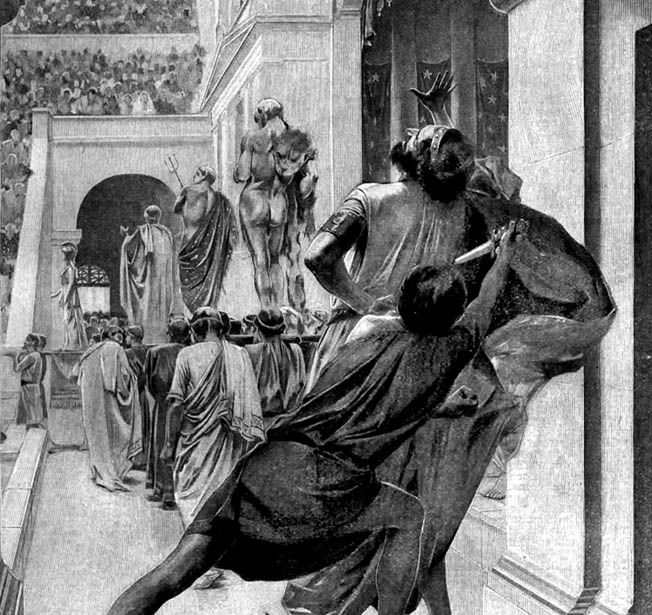
The destruction of Thebes, at least, is without question. Alexander then continued on to Athens, a hotbed of anti-Macedonian sentiment; one of its citizens, Demosthenes, had celebrated publicly at the news of Philip’s death, and during his lifetime had referred to him as “neither Greek nor a remote relative of the Greeks, nor even a respectable barbarian.” Alexander ordered nine of its citizens to be given up for various crimes against himself and his father, yet it says something that he relented when only Demosthenes was given up. Arrian suggests this was done out of respect for the city but, as will be suggested, his reluctance to attack Athens was linked to his eagerness the following spring to get on with the Persian war: he was running out of money with which to pay his troops and keep them supplied. Such practicalities are usually forgotten by the future myth makers, but the razor’s edge moment of those months before the Persian campaign must be imagined if the full weight of his victory is to be comprehended. The campaign could so easily have stalled and gone exactly nowhere. At this point, Alexander was still just a charismatic 21-year-old who only became king because his father angered the wrong people. History, as it were, was still in the future.
Alexander and his army did leave Greece for Asia in the spring of 334 bc, however, and it is worth noting that he and his father only sought war with Persia over a grudge more than a century and a half old. Just as the destruction of Thebes was interpreted as divine retribution for the city’s surrender during the Persian Wars of 490 bc and 480 to 479 bc in the same way, Alexander sought to retaliate for that same Persian aggression.
When his army crossed the Hellespont into Anatolia, it did so with the weight of generations behind it. And when he sacrificed at the grave a Greek hero from the Trojan War, he pushed his own narrative back further for he was beginning yet another war with the ancient enemies of Greece.
Alexander crossed first, at the head a small group that landed at Troas; he then poured libations into the sea for the protection and safe crossing of as many as 160 triremes, led by Parmenion, which landed at Abydos. By this time Alexander had arrived in Troy, where he sacrificed to Trojan Athena and thought it best to take the sacred weapons from the temple there for his own use. He and his probable lover Hephaistion then placed wreaths on the graves of those other probable lovers, Achilles and Patroklos. Traveling north, he joined his army again at Arisbe and continued on through Perkote and Lampascus, hugging the northwestern coast of Anatolia. The roughly 60 miles from Arisbe to the Granicus was covered in a swift three days.
Memnon’s Unheeded Advice to Darius
The Persians knew he was coming. Persian King Darius III had succeeded to the throne the same year and under the same circumstances, which was the previous king’s assassination, as Alexander. But by the spring of 334 bc, Darius and his royal army were occupied in Egypt, a fact that, on the one hand, Alexander may well have been exploiting or, on the other, is evidence that Darius thought little of the Macedonian and saw no reason to face him. The sizable force that had been gathered to face the Macedonians was filled by men from the Anatolian territories and led by their satraps: Arsites, the satrap of Hellespontine Phrygia, as well as the satraps of Cilicia, greater Phrygia, southern Cappadocia, Lydia, and Iona. In addition, there was also a large contingent of Greek mercenaries.
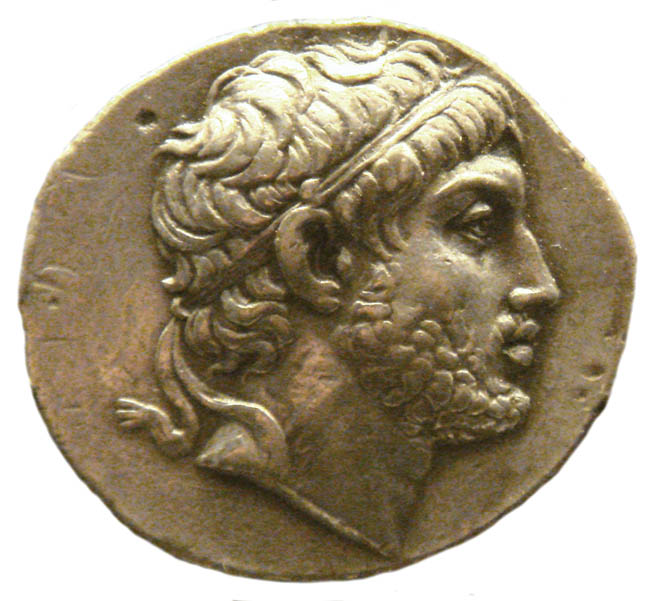
A strategic council was held at Zeleia 30 miles east of the Granicus, where one of the advisers to the Persians was Memnon of Rhodes, commander of the Greek mercenaries. Knowing how low Alexander and his men were on supplies and how unlikely it was that he would remain in the country if provisions were scarce, he advised a scorched-earth policy. Under the policy, the Persians and their Greek allies would destroy the fields, burn the harvest, and raze even the cities themselves. It would not have been difficult to learn that Alexander had ordered his men, as they marched east from Arisbe, to hold off looting or ravaging the land and draw one’s conclusions from there. Indeed, the ancient sources stress that from the moment he crossed the Hellespont Alexander only had enough supplies and money to sustain his army for at most 30 days and that he was eager for battle if only to seize control of the treasuries of the satraps.
Memnon’s advice may well have been sound, but he sabotaged himself by prefacing this strategy with a warning about the superiority of Alexander’s infantry. Taken together, both pieces of advice amounted to purposely avoiding battle, and seen in this light, the advice to destroy much of Hellespontine Phrygia was not much different from surrendering it. Such words were not welcomed by the Persians, especially from an outsider, and even one with such a deep knowledge of both the Persian and Greek armies as Memnon clearly had. Thus, they rejected both ideas and decided to set out immediately to meet Alexander.
At least recognizing Alexander’s superior numbers, the Persians also saw their own advantage: desperate as he was for a decisive battle that would refill his coffers, the Persians could essentially choose when and where the battle should take place. They decided to take up a position on the eastern side of the Granicus, knowing that when Alexander came to the river he would be forced to cross and fight. In this they were correct. If they considered it a trap, or at the very least a provocation, it worked. But it was a defensive rather than offensive position, one that required the Persians to wait; and the history of Alexander, and of warfare in general, suggests the psychological strength of the offensive position well enough. While the Macedonian army was in a technically desperate situation, and fresh from the march, circumstances turned desperation into a benefit. The only way forward for Alexander’s army was to fight. As for the Persians, they were simply in a reactive mode.
Alexander’s Numerical Advantage
This is what Alexander must have considered when he refused the advice of Parmenion and decided to cross the Granicus on that same day. The Persian army was composed of approximately 11,000 cavalry and 5,000 Greek infantry. In contrast, the Macedonians numbered approximately 30,000 infantry and 5,000 cavalry. Alexander set his line of battle with the main infantry in the center. To the right were the hypaspists, elite infantrymen known as shield bearers who were responsible for protecting the cavalry. They were followed by Alexander and his Companion Cavalry of nearly 2,000 men and additional cavalry units fronted by archers and lancers. A similar composition was found on the left side, led by Parmenion. Across the river, the Persian cavalry faced them immediately from the bank with the Greek mercenaries behind them on higher ground and with a view above the river.
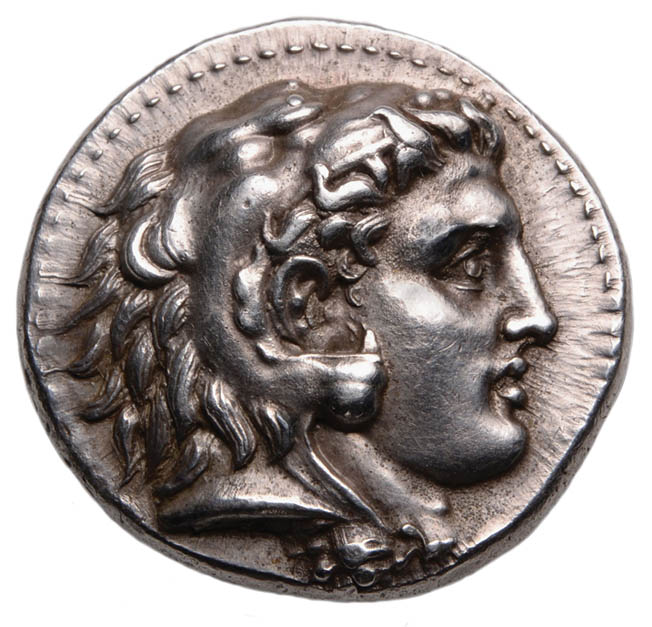
Alexander’s infantrymen and lancers would have been equipped with sarissas, 13- to 20-foot-long wooden spikes tipped with iron that required both hands to use. The first few ranks of infantry would advance with their sarissas level, while those in the remaining ranks would proceed with them held at an angle, providing protection for the advancing whole. The hypaspists, free from the restrictions of infantry that required advancement as a unit, were much more mobile and carried a smaller spear than the sarissa, while the cavalry was equipped with a smaller slashing sword as well as a xyston, a lance that while shorter than the sarissa (at about nine feet) had the advantage that it could be used with only one hand and which, since it had a tendency to shatter, also had a second spear end on the butt. Each of the Persian cavalrymen had a spear for throwing and another for close encounters, and the ancient sources relate that many of them also had a curved sword, or kopis.
The Deaths of Persia’s Three Great Captains
Alexander made a great point of being conspicuous in his double-plumed helmet on his army’s right side. Indeed, the Persians took the bait and concentrated their forces on him, expecting him to lead the charge against their left. The Persians’ main objective, of course, was to kill Alexander. Indeed, Alexander ended up aiming for the Persian commanders as well. This was a common ancient tactic, where loss in battle came about from the death of a king or general, a virtual decapitation of the leadership that fanned out and destroyed morale all down the line.
After the ordering of Alexander’s line, Arrian writes, “There was a great silence on both sides.” The Macedonians were waiting to begin, the Persians to defend. Alexander then ordered a large force of cavalry and javelin men and archers to his right (led by his generals Amyntas and Socrates) to cross the river and attack the Persian left, but he and the remaining Companion Cavalry did not join them. Not comprehending this, the Persians drew even more cavalry from their center to protect their left flank. Despite the drama of some of the ancient authors, the river itself would have been neither deep nor rushing as his men crossed and likely would not have risen above the horses’ knees. And while the banks leading out of the river and to the plains beyond were steep at points, much of Alexander’s army would have encountered only a simple slope.
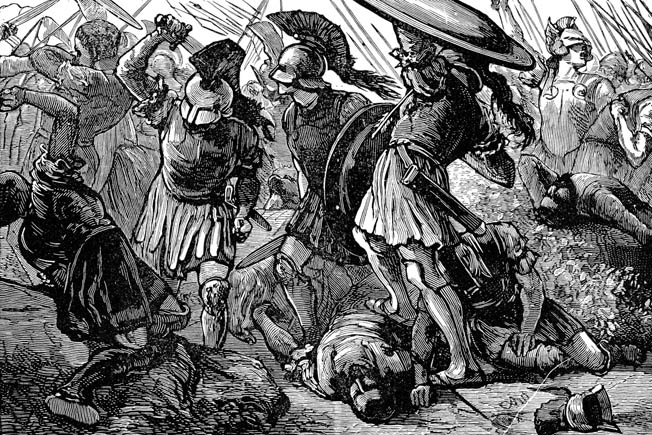
While Alexander had successfully drawn the Persians from their center, he had not bolstered his own forces to match them, and they were horribly outnumbered. First attacked from above, in a moment the Persians came down to the riverbank to face them there as well. The violence in the water was great, and the outnumbered Macedonians, while paving the way for those who followed them, paid for this opening with their lives. Arrian simply says that they were cut to pieces, in part because they faced the most furious strength of the Persian cavalry that had been maneuvered there in the mistaken hope of facing Alexander.
But as Alexander predicted, the bloody distraction worked. As more Persians advanced to their right, Alexander finally led the remaining force of his Companion Cavalry and the full thrust of his infantry phalanx to the weakened Persian center, which buckled even more when it could confidently make a rush for Alexander himself. This left a gap in the Persian center that allowed, as Arrian writes, “Battalion after battalion of Macedonians to succeed in crossing the river with no difficulty.” Blind to this, the Persian command rode down the bank to engage him in direct combat, and the river was so crowded with men and horses that it was said to be more like an infantry engagement. The confusion of such close, hemmed-in fighting at the edge of and within the river, all swirling around the figure of Alexander, must have been tremendous, and one hopes that the Persians savored these moments, since their upper hand was soon to evaporate.
The Macedonians gained the upper hand in part thanks to the cavalry’s capable use of their xyston, which they thrust into the face of the Persian cavalry and their horses, seriously injuring the men or even just goading the horses; a good many horses reared up and threw their riders. At the same time, the Persian focus on Alexander quickly backfired and turned into the deaths of many among their own command: Alexander killed the son-in-law of Darius, Mithridates, but a moment later was struck in the head by Rhoisakes, who lives on in history simply for this one swing. The blow cut open Alexander’s helmet (and the double white plumes atop it), but somehow he was able to fight back and kill Rhoisakes. Dazed in the water and trying to make for the bank, Alexander did not see another Persian, Spithridates, coming toward him, kopis raised, but before he could deal a death blow to Alexander, his arm, which was grasping the sword, was cut off by Kleitos, son of Dropides, the real hero and savior of the battle.
All three of these men, Mithridates, Rhoisakes, and Spithridates, were prominent Persian leaders, and their deaths had the same effect as Alexander’s demise would have had on the Macedonians. Other members of the Persian command were also probably killed in the melee, and entire divisions of cavalry were thrown into a panic only veteran soldiers can truly imagine and which historians can only pretend to put into words: a sudden claustrophobia, mere adrenaline replaced by fear, and a previous confidence shredded by an enemy that keeps on coming. It was the decisive moment in the battle since by this time the Macedonians on the left had forced the remaining Persians into the plain beyond the river. The demoralization of the Persian center rolled outward like a wave until the entire army collapsed. The two sides had been fighting, perhaps, for less than an hour.
The Victorious Alexander
With the disappearance of any advantage they may have had and unable to face the Macedonian forces in open country, the Persians fled. Many cavalry were killed in the retreat, and those who got away only did so because Alexander now turned his attention to the Greek mercenaries that had been stationed behind them, a half mile away, waiting to be called into the action. One wonders why they did not retreat as well. It is only too easy for Arrian to say that they remained where they were “not so much from any firm determination as from terror at the unexpected turn of events,” but we might give them the benefit of the doubt; certainly no face could have been lost had they chosen to retreat alongside the Persians who had hired them. It must have taken some courage indeed to not flee and to stand their ground for the brief second before they were slaughtered. Those who survived were taken captive, bound, and sent to Macedon to serve as forced labor in the mines or elsewhere.
The harshness of this treatment has been commented upon for centuries. Plutarch’s version of the event is even worse, since here the mercenaries at least attempted to surrender but were butchered or led off anyway. Perhaps Alexander was simply carried away after nearly being killed himself, since we must still imagine him with his split helmet and tattered plumes. Another motive, which was that he was interpreting the terms of the League of Corinth as literally as possible since it forbade Greeks to fight other Greeks, assumes a level of detached and reasoned reflection in the heat of battle which even in the best commanders seems impossible. This conclusion is even more unlikely since in later times Alexander did not hesitate to take in Greek mercenaries when it suited him, including those who had served under Darius III.
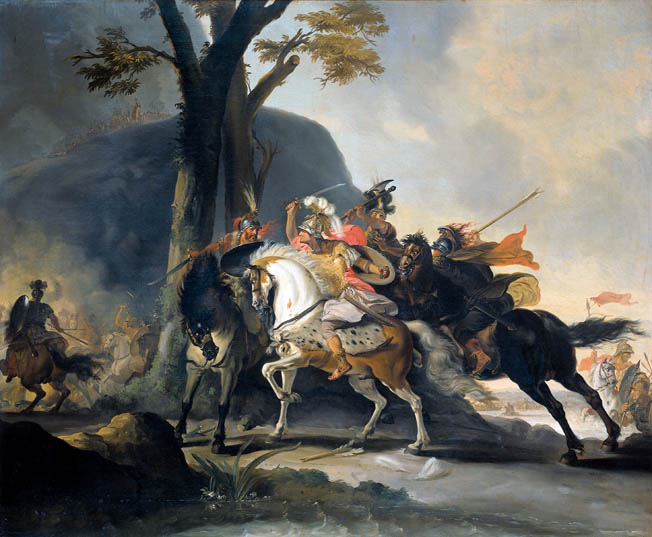
One account of the battle leaves this episode out entirely, and there are, of course, as many reasons to leave it out as to make it up. But if it did happen, Plutarch sums it up simply enough by stating that in his treatment of the mercenaries Alexander was “influenced more by anger than by reason.” It is always worth reminding ourselves that if he chose to and if he calculated the reactions of others correctly, Alexander could largely do what he wanted.
In the days following the battle, Alexander had the dead of his army buried and their parents and children exempted from a whole slew of taxes. He also visited the wounded, Arrian writes, “examined their wounds, inquired how each man came to be wounded, and gave them the opportunity to recount and even embellish their exploits.” Just as quickly, then, it is not difficult to see why his men loved him so. Individuals, let alone those living lives of constant warfare, are never just one thing.
Alexander also buried the dead Persian commanders who had been left on the field by their comrades. Their main losses, after all, had not been in great numbers of men, but in the small number of important leaders, among them cavalry commanders, satraps, and relatives of Darius III. One commander, the satrap Arsites, the Persian who in many sources is the most vocal opponent to Memnon’s advice for caution and in whose territory the battle was fought, escaped to Phrygia and committed suicide for his part in the defeat. Memnon of Rhodes died the following year, but only after capturing a few Greek islands and nearly bringing Athens around to revolt. His son took over command of the fomenting rebellion in and around the Aegean, but when Darius lost to Alexander at the Battle of Issus in 333 bc, his career was over too. And here it is interesting to imagine how, under other circumstances, Memnon and his son could have risen to great heights, while the unfortunate Philip and his son Alexander made a mess of Macedon.
Onward to Greatness
But Alexander lived, and Granicus was only the beginning. He had 300 sets of Persian armor sent to Athens as a dedication to Athena on the Acropolis and as a reminder that he had avenged the Persian destruction and sacrilege to the older Parthenon in 480 bc. He also had an inscription placed on the new Parthenon which read: “Alexander, son of Philip, and the Greeks, except for the Spartans, dedicated these spoils from the barbarians dwelling in Asia.” Ever the politician, he emphasized the usually denied “Greekness” of the Macedonians, who themselves had been considered barbarians or lower only recently, and this even though he had certainly killed more Greeks than Persians in the battle.
In the years following, Alexander conquered the Levant and Syria, was greeted as a liberator in Egypt and, upon visiting the Oracle of the Siwa Oasis in the Libyan Desert, was declared the son of the Egyptian god Amun and founded the city of Alexandria. By the close of the 330s bc he defeated Darius III, had taken Babylon, and finally entered central Asia and the Indian subcontinent. By this time any initial motive of avenging Persian aggression had passed into an extreme form of egomania, culminating in the desire to simply conquer the entire known world. But bogged down in India, his army refused to go any farther, longing, they said, to see their kinfolk and homeland.
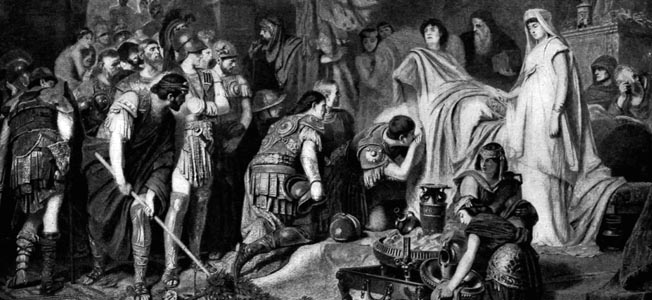
Whatever good Alexander had done by creating such far-reaching links between the Mediterranean and the Far East and everywhere in between, and by allowing disparate cultures to intermingle and learn from each other, one of his last recorded remarks suggests a kind of cynicism that he must have learned from day one. Asked on his deathbed who his kingdom should devolve to, he is said to have replied, “To the strongest.” He had only succeeded to the throne by chance and by strength, after all, and it is hard to imagine that in the decade since he had not learned and relearned the brutal fickleness of everything. Had he uttered the name of a specific heir, which utterance would today be considered as apocryphal as his saying “To the strongest,” that person would have been killed immediately or he would have set about massacring any rivals. In these three deathbed words is encapsulated much of the callousness of history, so much so that one wishes the Roman historian Tacitus had lived a few centuries earlier to put his own stamp of dark realism on the scene.
New cities named after Alexander, or old ones renamed, are still scattered across modern Turkey, Iraq, Pakistan, Iran, Afghanistan, and elsewhere. His refusal to destroy the cultures he encountered, preferring rather to fuse them with Greek culture, was laudable. Yet, to give one illustration among thousands, it is undeniable that some of the earliest representations of the Buddha were influenced by Greek statues of Apollo and that those were in turn influenced by much earlier Egyptian art. There had always been continuities of this kind, and Alexander only facilitated them. Religious, artistic, political, scientific, and philosophical ideas continued to cross between East and West and to coalesce with the help of the many silk roads and other trade routes that Alexander’s conquest, culminating in an empire approaching two million square miles, helped to create. It was all set in motion because of his victory at Granicus and the further opening into Asia that this victory gave him.
So many anecdotes are possible from these vast links made across the known world, and fewer lives and careers are as full of potential stories as that of Alexander, but the best are of philosophers or others who find little to admire in him. Thrilled one day to meet with Diogenes of Sinope, Alexander approached him and asked if there was any favor he could do for the infamous philosopher, who simply asked for the conqueror to stop standing in his sunlight. Much later, in India, when Alexander asked to take a handful of local Brahmin priests on campaign with him, he received these words in reply: “I want nothing from you, for what I have suffices. I perceive, moreover, that the men you lead get no good from their worldwide wandering over land and sea, and that of their many journeyings there is no end. I desire nothing that you can give me; I fear no exclusion from any blessings which may perhaps be yours.”
Just as Memnon’s advice to the Persians seems too easily paired with Parmenion’s advice to Alexander and verges on the folk motif, so these and other stories from Alexander’s life may well be less than historical though no less instructive of a deeper truth. No one should ever think too highly of themselves, and anyone in their lifetime or later known as “Great” should be treated with suspicion. The ancient world valued large personalities and individuals but also saw how ambition could turn to tragedy and ego to tyranny. To achieve that paragon of civilization, that is, to use the tools and advantages of civilization to conquer others, and attempt to civilize them under the authority of one person or country, could just as much be a poison as a positive ambition.
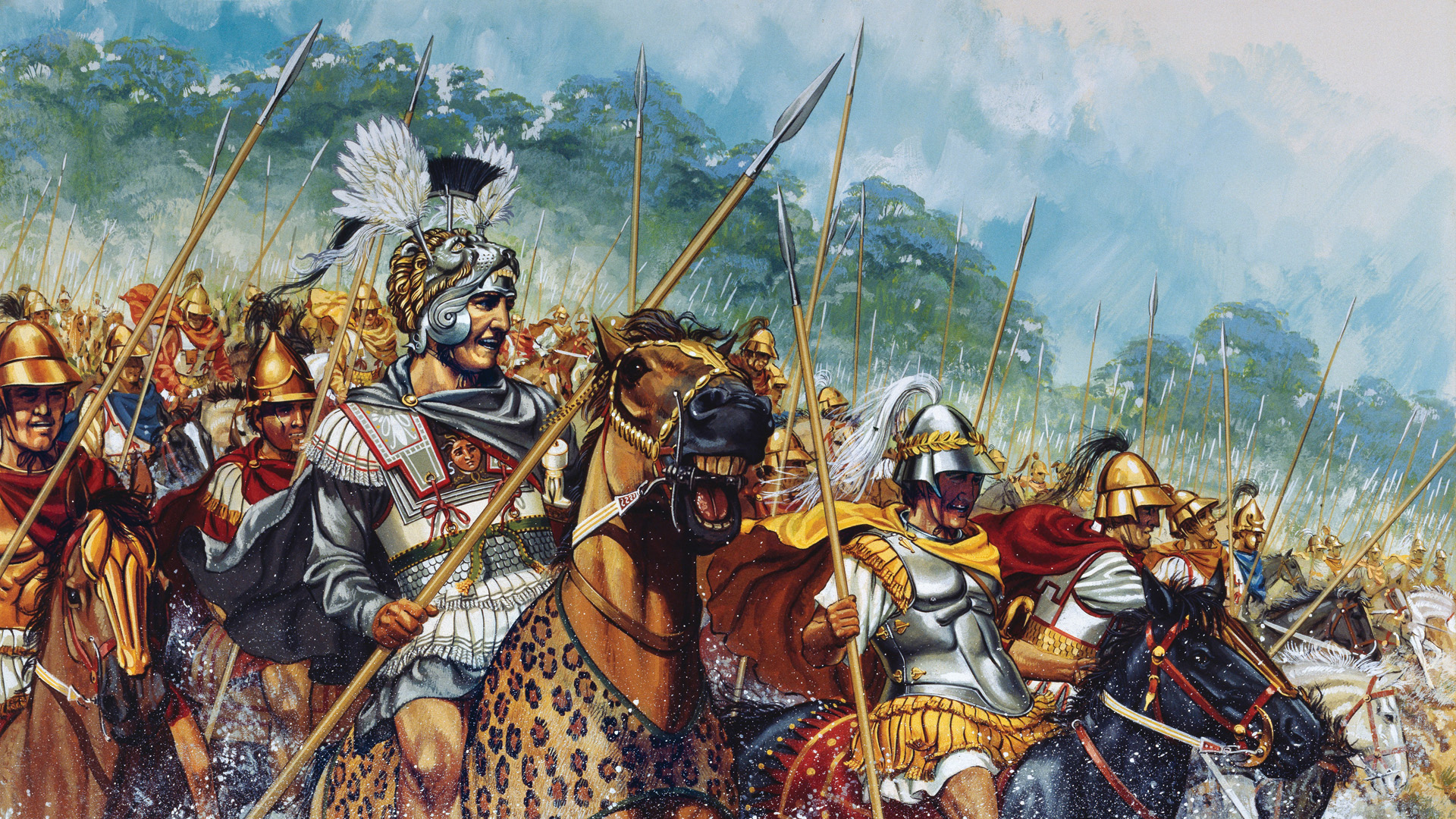
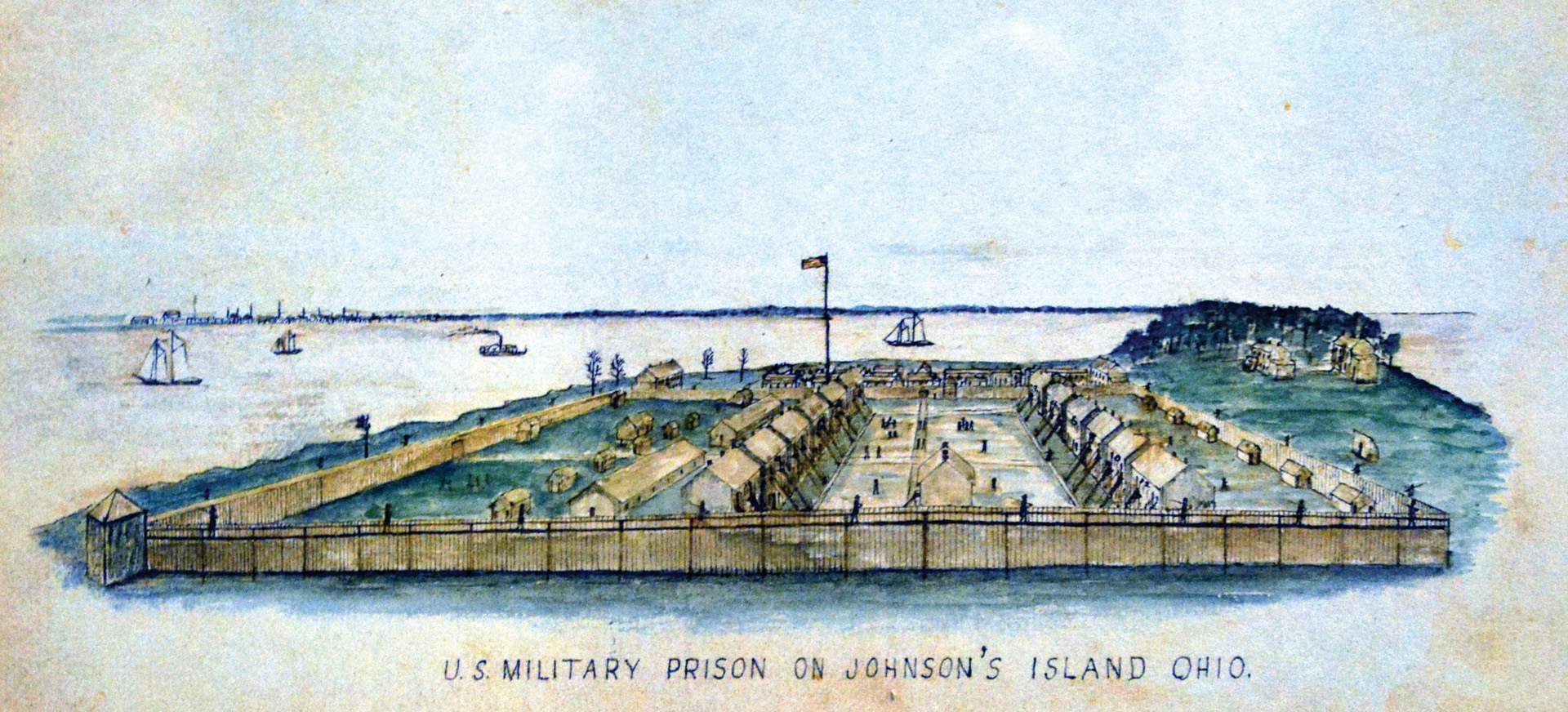
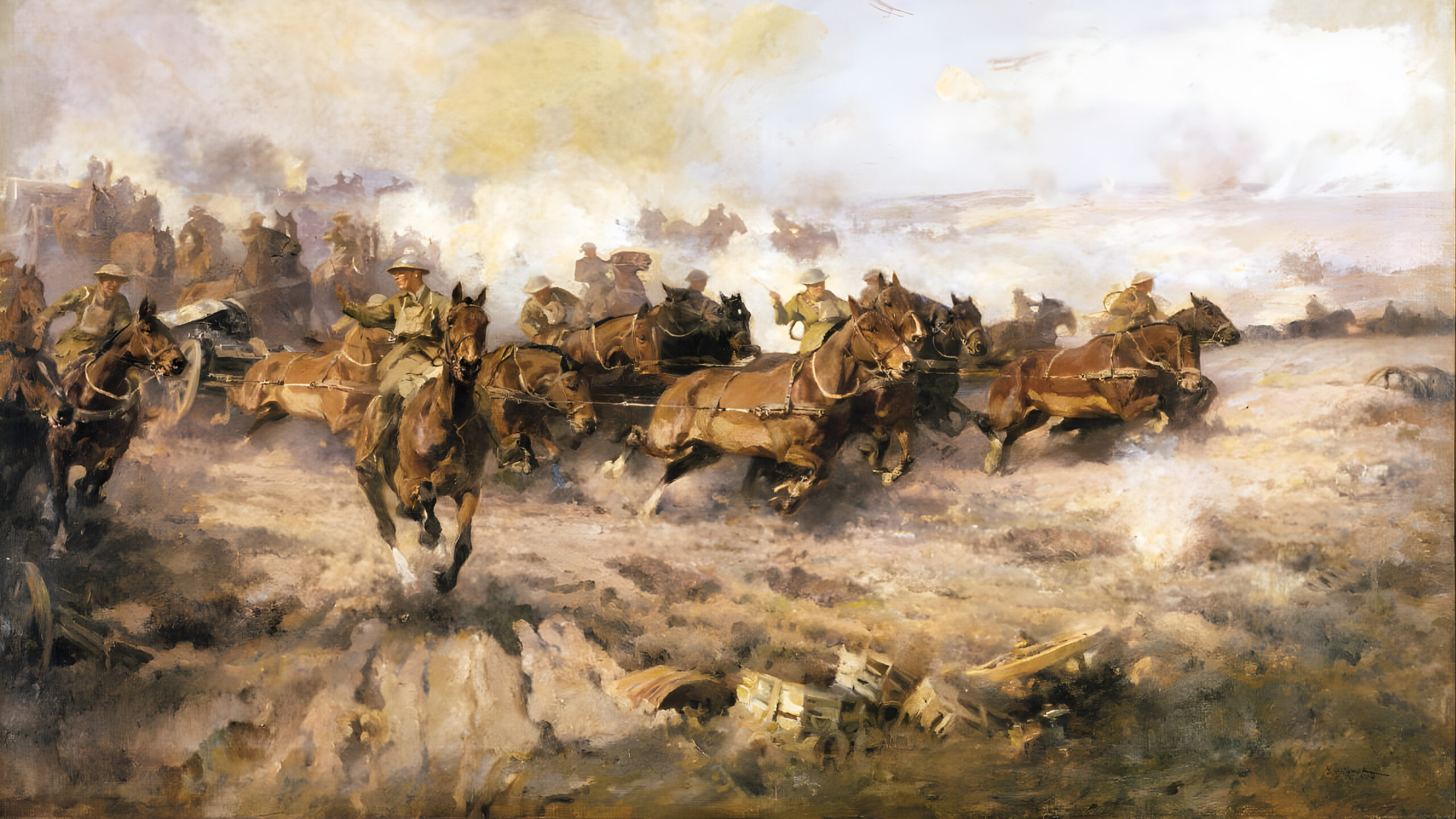
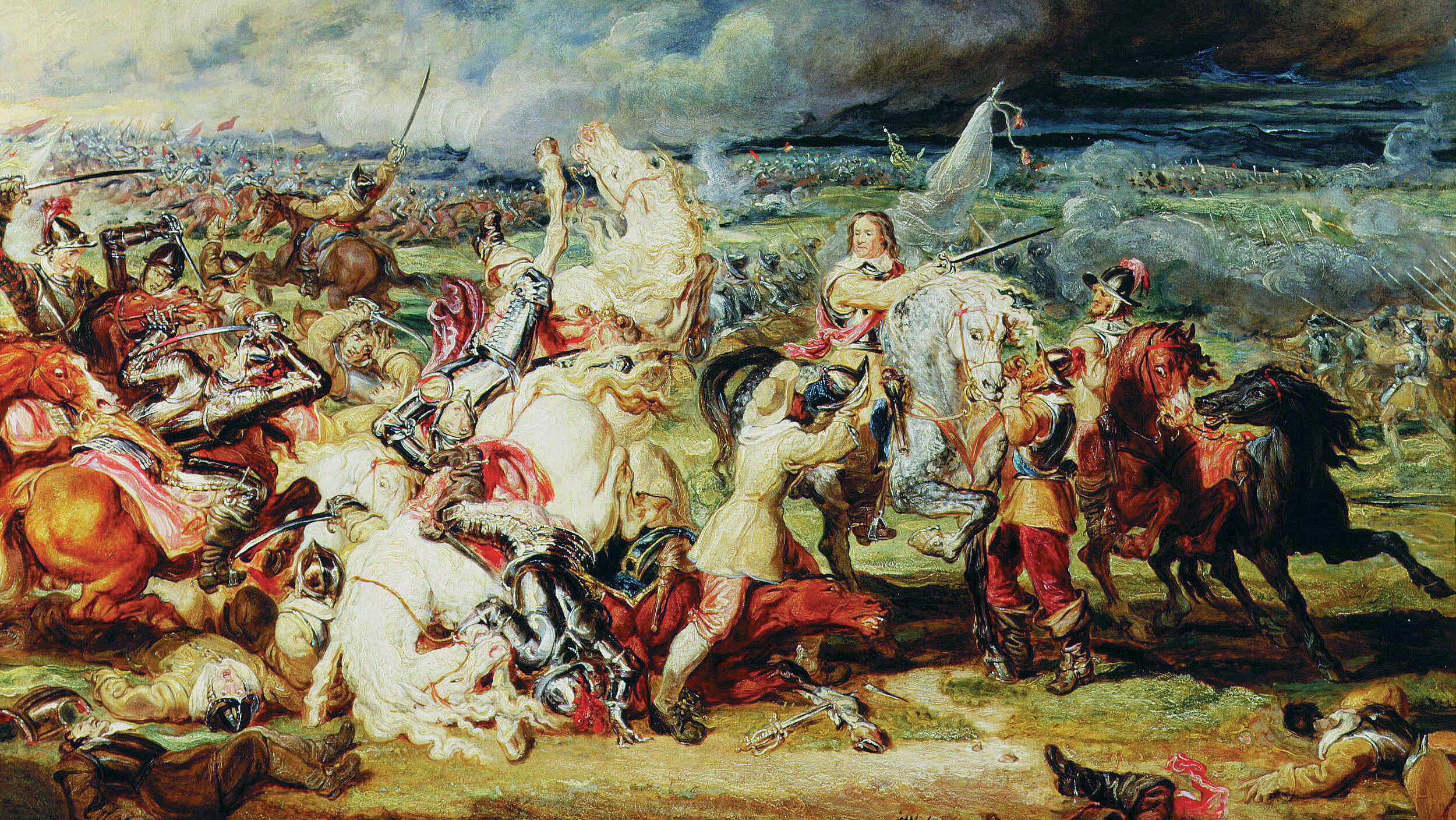
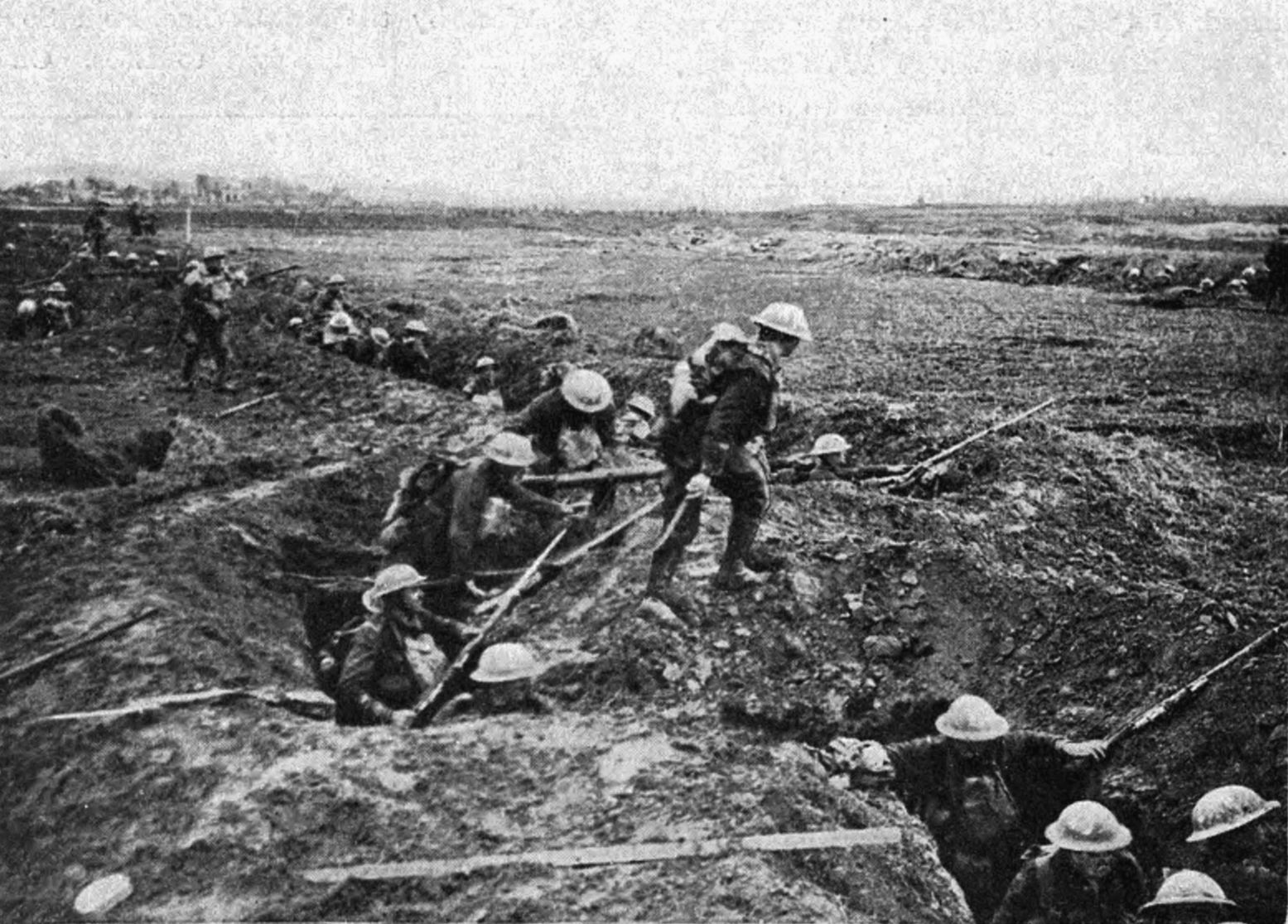
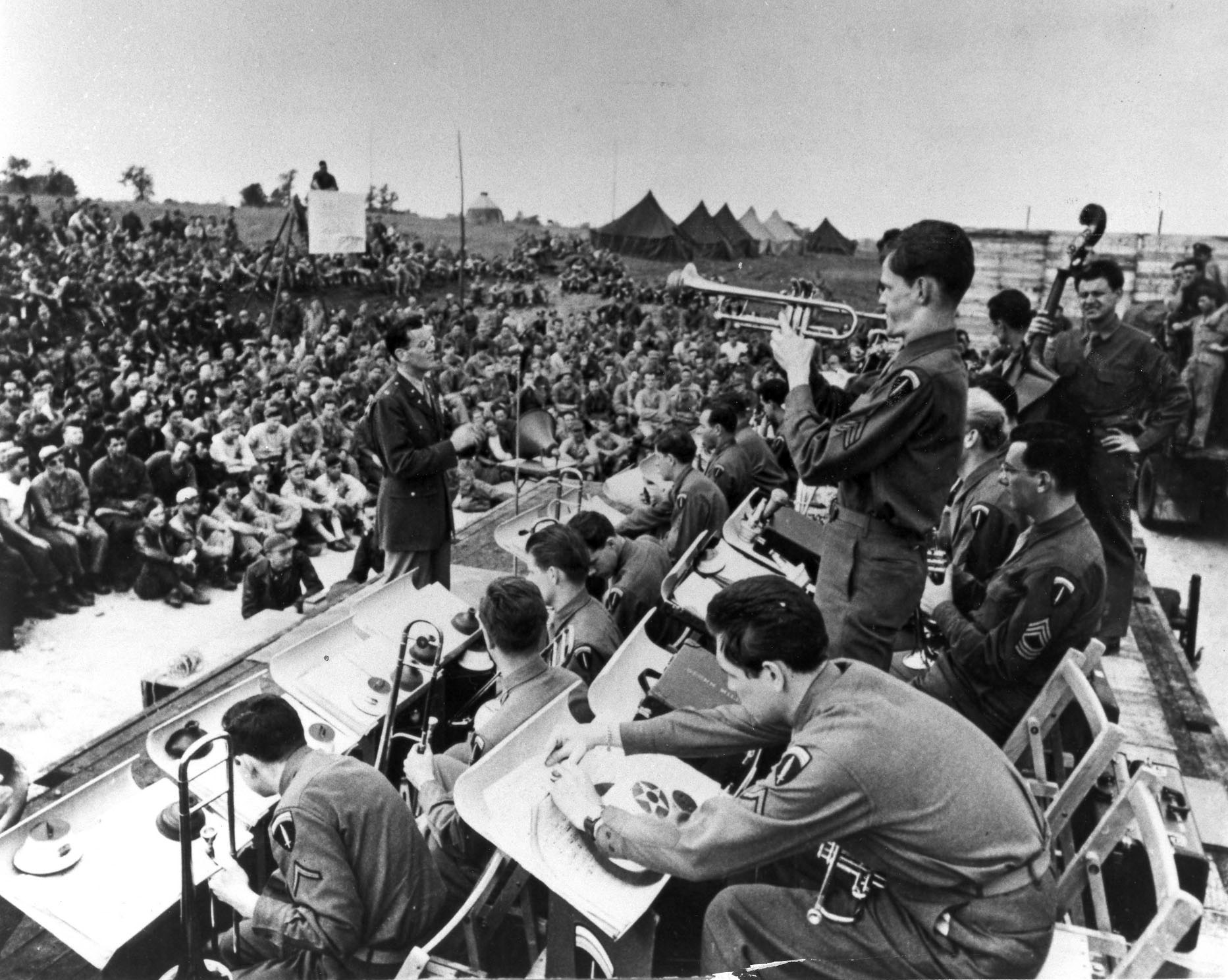
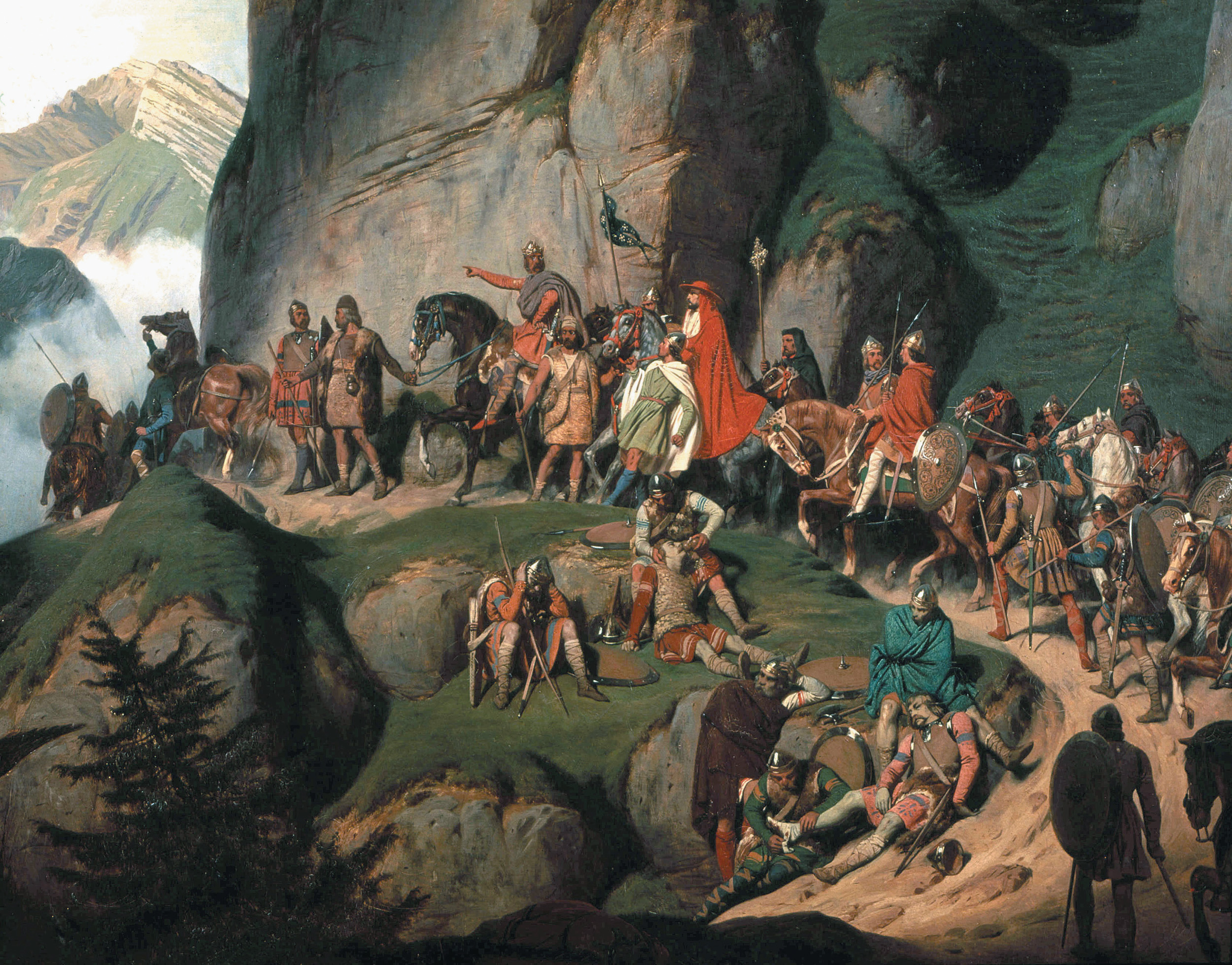
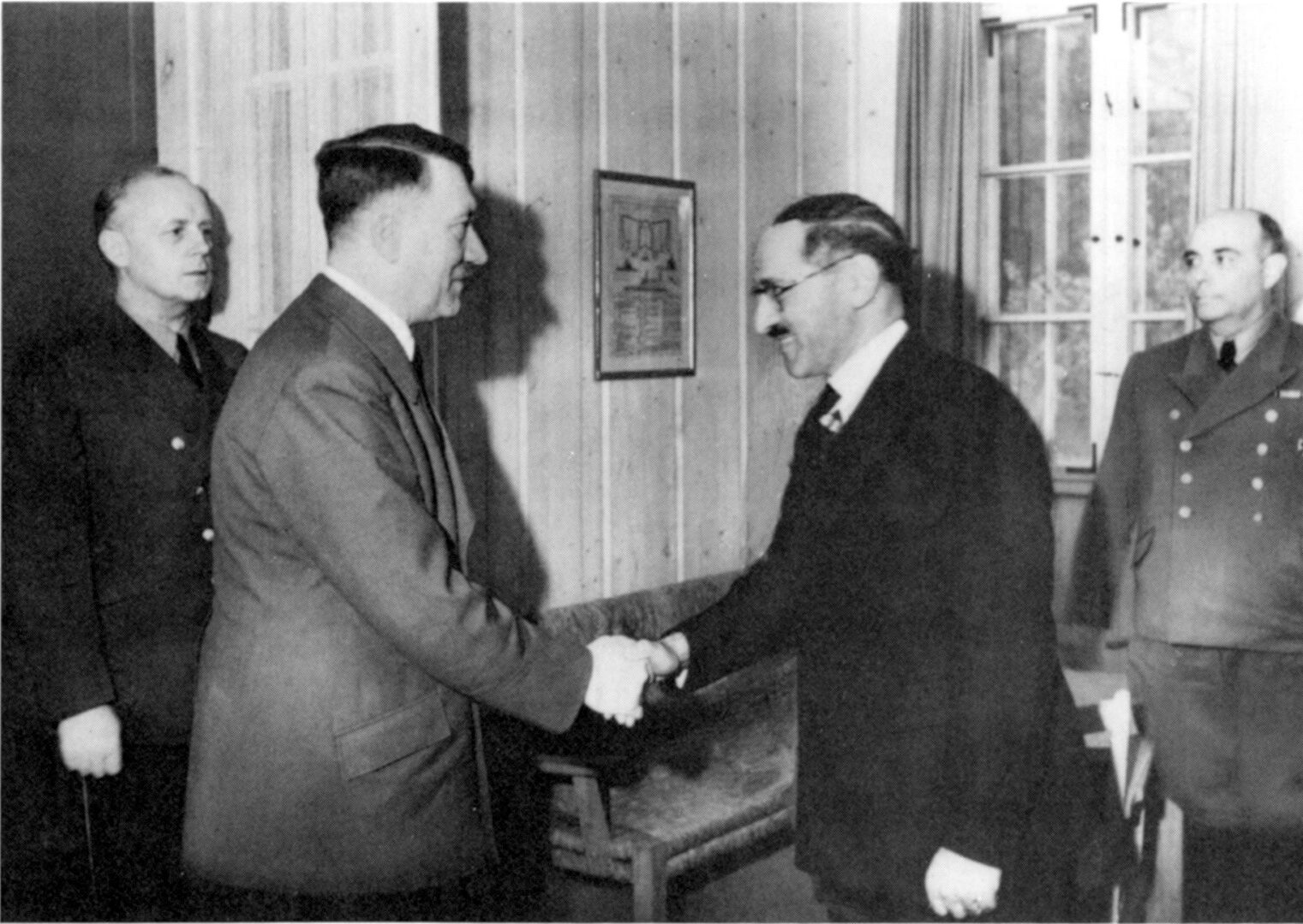
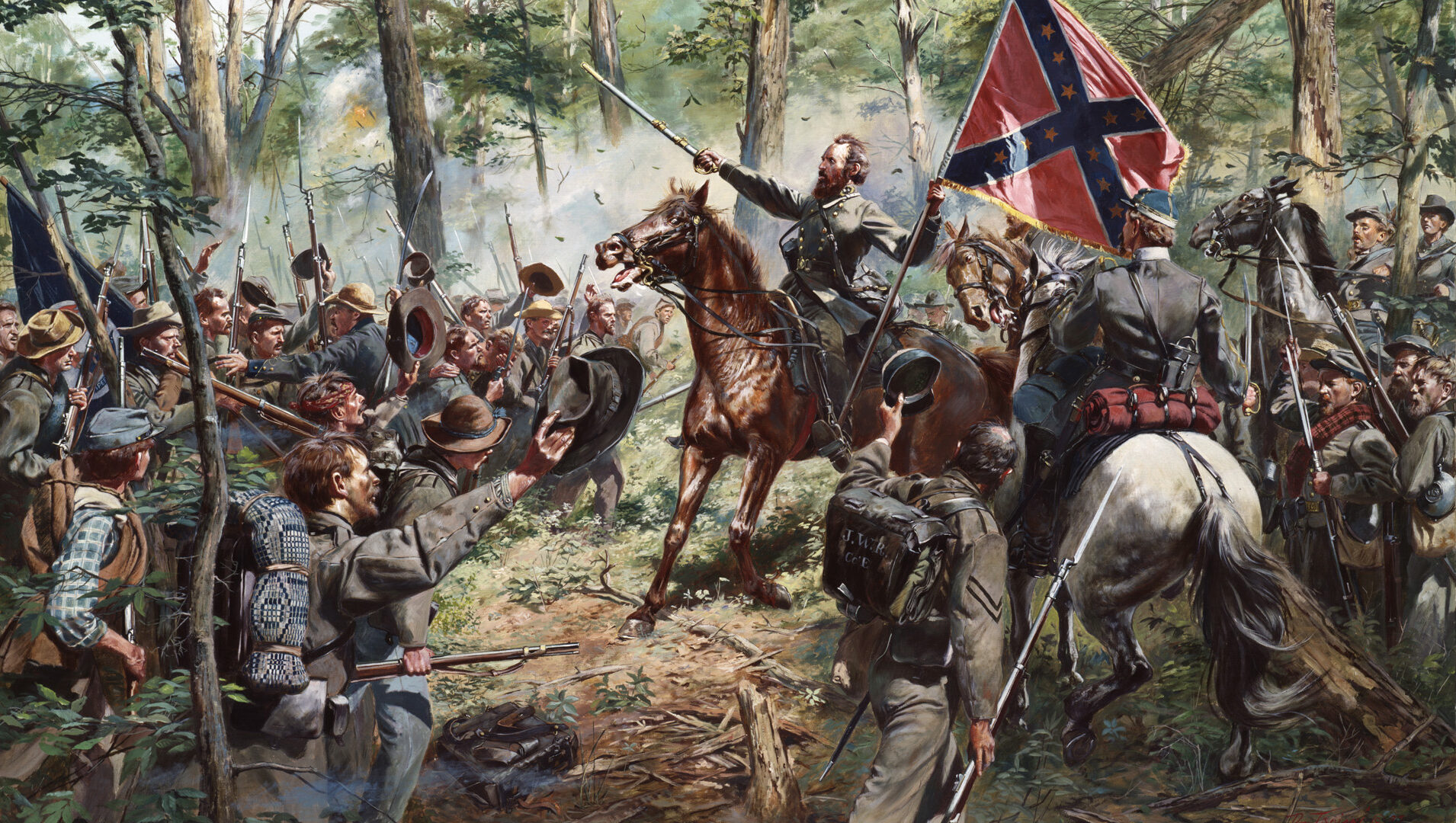
Where are the MAPS??